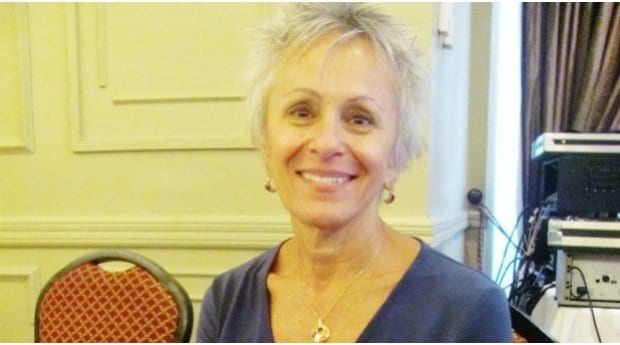A care facility in Vancouver’s West End is attempting to implement recommendations from a three-month-old report on providing better care for LGBT seniors. But neither the provincial government nor its local health authority will mandate all facilities and intake workers to follow suit.
Released Sept 22, the “Aging Out” report from BC’s Qmunity queer resource centre recommends that all intake workers be trained to ask seniors about their sexual orientation and gender identity so they can place them in more welcoming facilities. It also recommends that LGBT seniors get more than the usual 48 hours to ensure that any bed offered to them is in a facility where staff have been trained to meet their needs.
Focus group participants told the “Aging Out” researchers that they would be willing to answer appropriately posed questions on sexual orientation and gender identity in order to ensure they’re placed in care homes better equipped to serve them.
Since the report’s release, Catherine Kohm, director of Haro Park Centre, which provides independent housing, assisted living and residential care for seniors in the West End, says her staff have participated in a sensitivity-training seminar, where one staff member even came out to fellow co-workers. “The report has highlighted the attention on the LGBTQ community and some of the extra challenges that they face going into a care facility,” she says.
In April, prior to the report’s publication, Kohm told Xtra that Haro Park staff already attended workshops on how to better meet the needs of LGBT seniors. Of the approximately 150 seniors in residential care at Haro Park, Kohm estimates that about a dozen are openly lesbian, gay, bisexual or transgender.
Mae Quon-Forsythe, manager of residential care for the Vancouver Coastal Health Authority (VCHA), which collaborated with Qmunity on the research, welcomes the report and the information it offers care providers. “As the population ages there’s going to be more LGBTQ people that need to be supported so they can live how they choose to live,” she says.
But VCHA won’t order facilities to train their staff. “We don’t mandate education; we promote it,” Quon-Forsythe says. “It’s really up to the [LGBT] community to get that lobbying done,” she adds.
The report recommends amending provincial intake forms so data regarding sexual orientation and gender identity can be recorded and used for better residential placement. But a spokesperson for the Ministry of Health says intake workers can’t ask those questions.
“Patients are welcome to express their preference for facilities and factors they would like considered for their placement,” Stephen May says. “This may include their sexual preference if they volunteer that information. However, asking for it is a violation of human rights, and intake forms cannot be amended to require this information.”
The report also recommends that LGBT seniors be given more than the standard 48 hours to assess the first bed they’re offered in care so they can assess whether staff in the facility are sufficiently trained on gay issues. But May says two days are generally considered adequate to assess a facility.
“Every effort is made to consider each patient’s needs and preferences when health authorities offer a placement to patients,” he says. “In most cases, 48 hours is an appropriate amount of time to make a decision. If the health authority feels that the patient needs more time to assess the fit of this facility for them, they have the authority to make provisions in certain cases to extend the 48-hour First Available Bed policy timeline considered for their placement.”
May directed Xtra to BC’s Residents’ Bill of Rights for adults living in residential care. The document outlines the importance of freedom of culture, religion and spirituality but doesn’t mention sexual orientation.
Qmunity executive director Dara Parker says caregivers at several facilities approached by the researchers denied having any LGBT seniors in residence. Many make the mistake of “assuming falsely that everyone is straight,” she says.
“Relocating to a residential care facility is tough on all seniors, but for many queer seniors, the transition can be closeting,” Kohm says. “When you’ve been out for 30 or 40 years and you come into a facility and you’re living with people you don’t know, you’re bound to meet someone who’s not going to be as open or accepting. We can’t force everybody to be open and accepting, but at least we can talk about it.”
Parker hopes Qmunity’s “Aging Out” report will help move the conversation forward. “We believe that by increasing visibility of the issue, folks will start to pay attention and hopefully start a dialogue around what can be done for seniors and where we can get support,” she says.
Parker notes that seniors who came of age in an era where homosexuality was still criminal or considered a mental illness are especially likely to stay closeted or return to the closet when they go to a seniors’ home.
Donna Belle, 70, is concerned about living out the rest of her life in a facility that fails to respect her gender identity. “I don’t think about the future that much,” she says. “It scares me. I don’t want to have to go back in the closet in a care home.”
Belle thinks LGBT sensitivity training should be mandated as part of care aid certification. She says “Aging Out” should be readily available in hospitals as well as used as a guide for all care-home staff and residents.
“If a gay couple want to kiss at the breakfast table in front of staff at a care home, then they should be able to,” she says. “It’s life, and people need to be accepted. It’s about giving older people hope.”

 Why you can trust Xtra
Why you can trust Xtra


